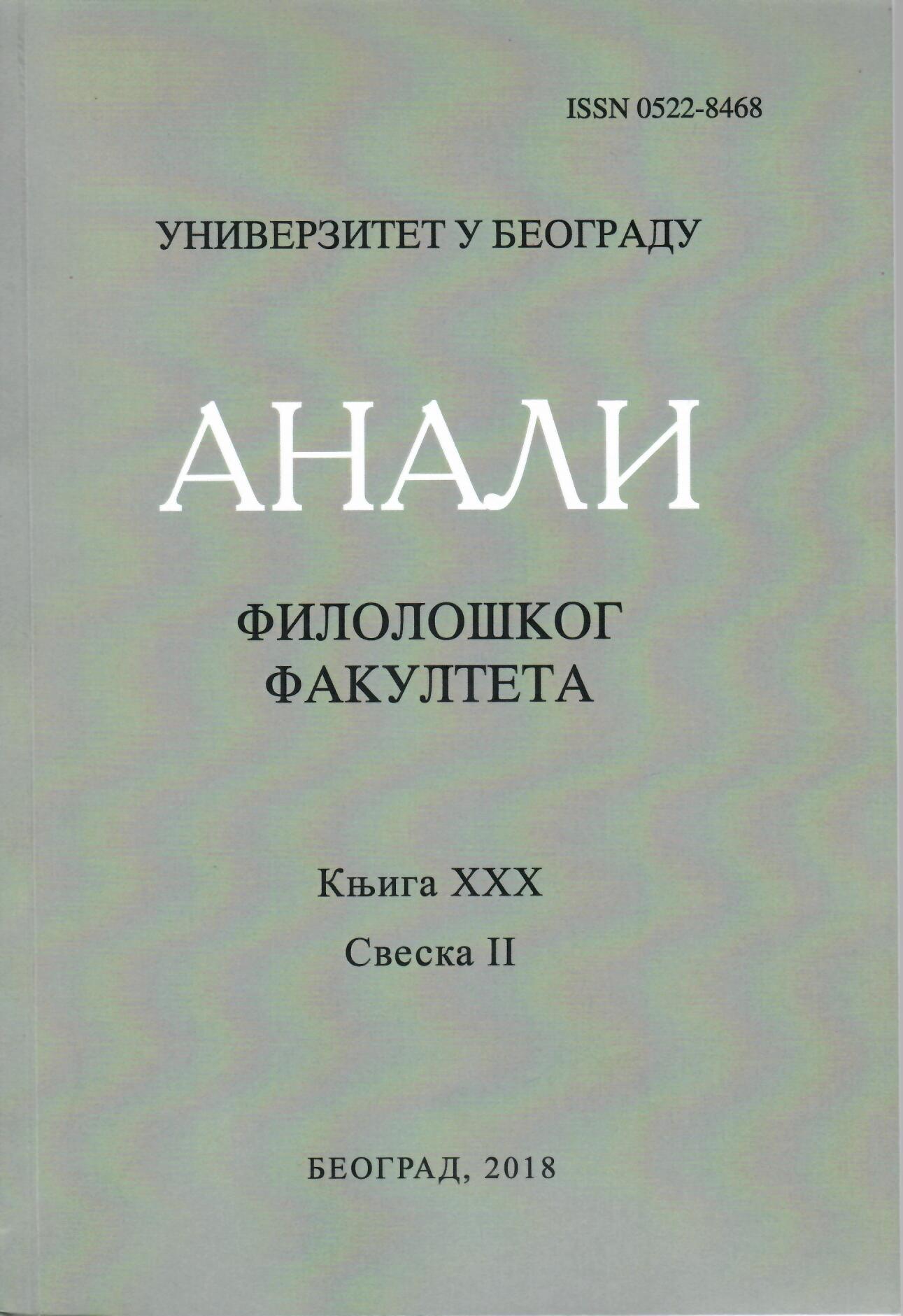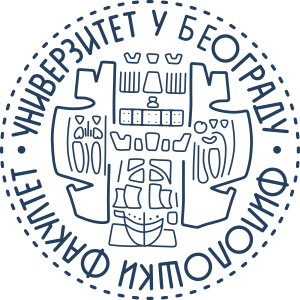Фразеологизми са кључном речју „новац” у савременом грчком, румунском и српском језику
DOI:
https://doi.org/10.18485/analiff.2018.30.2.9Keywords:
новац, савремени грчки, румунски, српски, фразеологизми, еквиваленцијаAbstract
Основну окосницу овога рада представљају фразеологизми који су изведени (формирани) било уз помоћ примарне лексеме новац / пара (паре) у три савремена балканска језика, било неке секундарне лексеме (попут грош, талир, крајцара и слично) која се такође односи на новац, а која је у ранијим историјским периодима била у оптицају. Све забележене фразеологизме разматрамо понајпре компаративно, потом и контрастивно. На крају рада смо се укратко осврнули и на статистичке податке до којих смо дошли током анализе. Основни закључак који се намеће јесте да између наведених језика превагу односи фразеолошки нулти степен структурне еквиваленције, док семантички ниво еквиваленције углавном припада делимично подударној категорији. У неку руку, ово није за чуђење, будући да је човеков однос према новцу, са једне стране, мање-више универзалан, али му је, са друге стране, у сваком језику приписана посебна улога и значај због посебних друштвено-културолошких условљености. Отуда су разматрани балкански језици пре хомотипични него идиотипични. Овај рад би уједно могао бити од користи у виду предлога (смерница) за најадекватније или најприближније преношење фразеологизама приликом превођења са неког или на неки од разматраних балканских језика.
Downloads
Published
How to Cite
Issue
Section
License

This work is licensed under a Creative Commons Attribution-ShareAlike 4.0 International License.
Authors who publish with this journal agree to the following terms:
- Authors are confirming that they are the authors of the submitting article, which will be published (print and online) in the journal Anali filološkog fakulteta by the Faculty of Philology, University of Belgrade (Faculty of Philology, Studentski trg 3, 11000 Belgrade, Serbia). Author’s name will be evident in the printed article in the journal. All decisions regarding layout and distribution of the work are in hands of the publisher.
- Authors guarantee that the work is their own original creation and does not infringe any statutory or common-law copyright or any proprietary right of any third party. In case of claims by third parties, authors commit their self to defend the interests of the publisher, and shall cover any potential costs.
- Authors retain copyright and grant the journal right of first publication with the work simultaneously licensed under a Creative Commons Attribution-ShareAlike 4.0 International License that allows others to share the work with an acknowledgement of the work's authorship and initial publication in this journal.
- Authors are able to enter into separate, additional contractual arrangements for the non-exclusive distribution of the journal's published version of the work (e.g., post it to an institutional repository or publish it in a book), with an acknowledgement of its initial publication in this journal.
- Authors are permitted and encouraged to post their work online (e.g., in institutional repositories or on their website) prior to and during the submission process, as it can lead to productive exchanges, as well as earlier and greater citation of published work.





